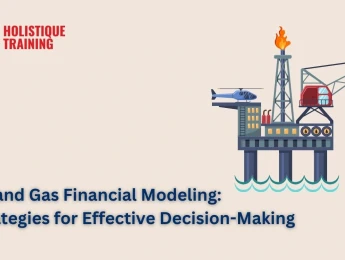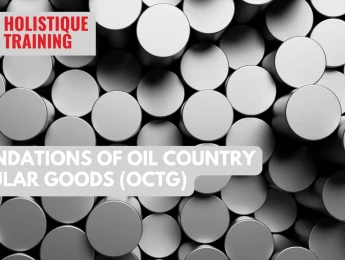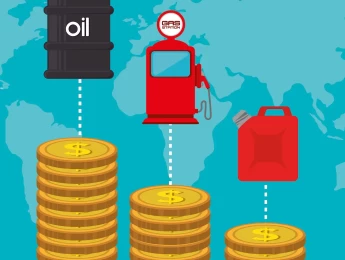This comprehensive course is designed to give participants an in-depth understanding of the oil and gas markets, focusing on trading, pricing mechanisms, and the economic framework that influences the global energy sector. Whether you are a professional in the field or seeking to enter this dynamic industry, this course will equip you with the knowledge and skills to navigate the complexities of oil and gas markets.
Upon completion of this course, participants will be able to:
- Understand the fundamental principles of oil and gas trading and pricing.
- Analyse market trends and economic factors affecting the oil and gas industry.
- Develop strategies for trading and managing market risks.
- Evaluate the impact of geopolitical events on oil and gas markets.
- Apply economic theories to real-world scenarios in the energy sector.
This course is intended for:
- Energy market analysts
- Trading professionals
- Financial analysts
- Industry consultants
- Anyone interested in gaining a comprehensive understanding of the oil and gas markets
The course employs a blend of theoretical lectures, practical case studies, interactive discussions, and hands-on trading simulations. Participants will be able to engage with industry experts and gain practical insights through real-world examples and scenarios.
Day 5 of each course is reserved for a Q&A session, which may occur off-site. For 10-day courses, this also applies to day 10
Section 1: Introduction to Oil & Gas Markets
- Overview of the Oil & Gas Industry
- Historical development and evolution
- Key players and stakeholders
- Global Energy Supply and Demand
- Trends and forecasts
- Factors influencing supply and demand
Section 2: Fundamentals of Trading
- Oil and Gas Trading Basics
- Types of trading (spot, futures, options)
- Trading platforms and instruments
- Market Participants
- Role of traders, brokers, and exchanges
- Regulatory environment
Section 3: Pricing Mechanisms
- Oil Pricing Dynamics
- Benchmark crude oils (Brent, WTI, etc.)
- Factors influencing oil prices
- Gas Pricing Models
- Long-term contracts vs. spot pricing
- Regional pricing differences
Section 4: Economic Framework and Analysis
- Macroeconomic Influences
- Global economic indicators
- Impact of inflation and interest rates
- Microeconomic Factors
- Cost structures and profitability
- Supply chain dynamics
Section 5: Risk Management and Strategies
- Market Risks and Mitigation
- Price volatility and risk assessment
- Hedging strategies and instruments
- Strategic Planning
- Scenario analysis and forecasting
- Decision-making under uncertainty
Section 6: Geopolitical and Environmental Considerations
- Geopolitical Risks
- Political instability and conflict
- Impact of International Sanctions
- Environmental and Sustainability Issues
- Regulatory trends and compliance
- Transition to renewable energy sources
Upon successful completion of this training course, delegates will be awarded a Holistique Training Certificate of Completion. For those who attend and complete the online training course, a Holistique Training e-Certificate will be provided.
Holistique Training Certificates are accredited by the British Assessment Council (BAC) and The CPD Certification Service (CPD), and are certified under ISO 9001, ISO 21001, and ISO 29993 standards.
CPD credits for this course are granted by our Certificates and will be reflected on the Holistique Training Certificate of Completion. In accordance with the standards of The CPD Certification Service, one CPD credit is awarded per hour of course attendance. A maximum of 50 CPD credits can be claimed for any single course we currently offer.
- Course Code IND01 - 140
- Course Format Classroom, Online,
- Duration 5 days












